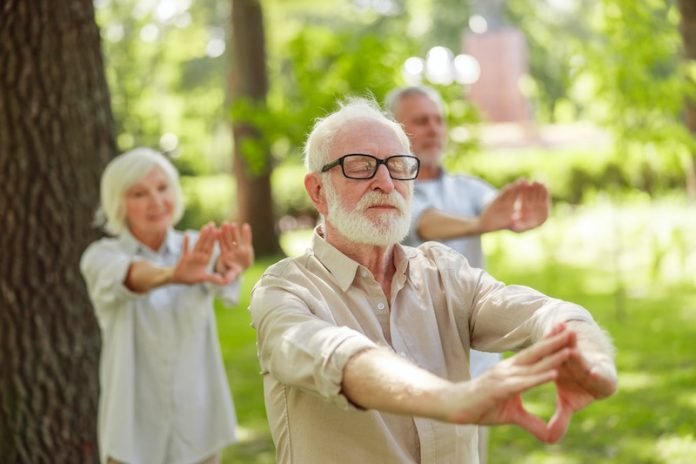
Parkinson’s disease is a severe and progressive neurological disorder known for symptoms like slow movements, trembling at rest, and stiff muscles.
It’s a rapidly increasing problem globally, with China expecting nearly 5 million cases by 2030, and in the UK, two people get diagnosed with it every hour.
Unfortunately, there’s no cure for Parkinson’s disease. While some drugs can help improve certain symptoms, they can’t address all the aspects of this illness.
Furthermore, these medications don’t seem to slow down the disease’s progression.
Tai Chi: A Potential Solution
In previous studies, it was found that tai chi, a gentle Chinese martial art consisting of slow, controlled movements, could provide short-term relief for Parkinson’s symptoms.
However, it remained uncertain if this improvement could be maintained over a longer period.
To investigate this further, researchers conducted a study over more than five years, from January 2016 to June 2021. They monitored two groups of Parkinson’s patients:
- Tai Chi Group: This group consisted of 147 patients who practiced tai chi twice a week, with classes to improve their technique.
- Comparison Group: The comparison group, made up of 187 patients, continued with their standard care without practicing tai chi.
Both groups had similar disease severity, medication use, sex, age, and education levels.
Positive Findings for Tai Chi
The study revealed several positive outcomes for the group practicing tai chi:
Slower Disease Progression: Patients in the tai chi group showed slower disease progression at all monitoring points. They had fewer increases in medication compared to the comparison group.
Improved Cognitive Function: Cognitive function declined more slowly in the tai chi group, and other non-movement symptoms also improved.
Fewer Complications: Patients practicing tai chi experienced significantly fewer complications such as dyskinesia, dystonia, hallucinations, mild cognitive impairment, and restless leg syndrome.
Better Quality of Life: Tai chi participants reported better sleep and improved overall quality of life.
The study also noted fewer side effects among those practicing tai chi, with fewer incidents of falls, dizziness, and back pain. Additionally, fractures were less frequent in the tai chi group during their daily activities.
While it’s essential to note that this study can’t establish a direct cause-and-effect relationship and had a relatively small number of participants, the results are encouraging.
Tai chi appears to have long-term benefits for Parkinson’s disease, affecting both motor and non-motor symptoms, including gait, balance, autonomic symptoms, and cognition.
What This Means for Parkinson’s Patients
Parkinson’s disease tends to worsen both motor and non-motor symptoms over time, leading to disability and a lower quality of life.
However, the positive effects of tai chi could delay disability, improving the quality of life for patients, reducing the burden on caregivers, and potentially lowering the need for medication.
In conclusion, while more research is needed to confirm these findings, the practice of tai chi shows promise as a complementary approach to managing Parkinson’s disease, offering hope for a brighter future for those affected by this challenging condition.
If you care about brain health, please read studies about Vitamin B9 deficiency linked to higher dementia risk, and cranberries could help boost memory.
For more information about brain health, please see recent studies about heartburn drugs that could increase risk of dementia, and results showing this MIND diet may protect your cognitive function, prevent dementia.
The research findings can be found in the Journal of Neurology Neurosurgery & Psychiatry.
Follow us on Twitter for more articles about this topic.
Copyright © 2023 Knowridge Science Report. All rights reserved.



